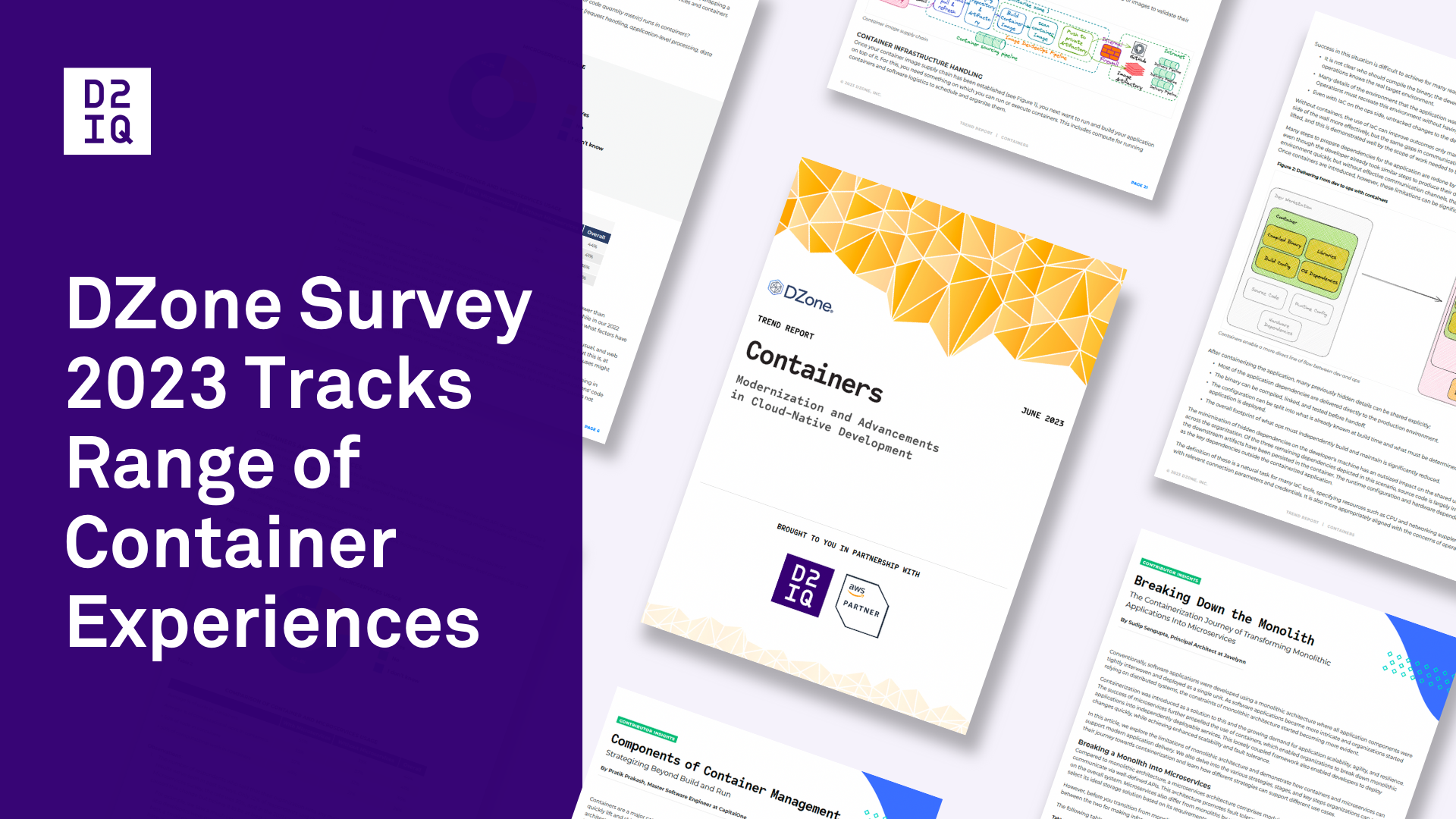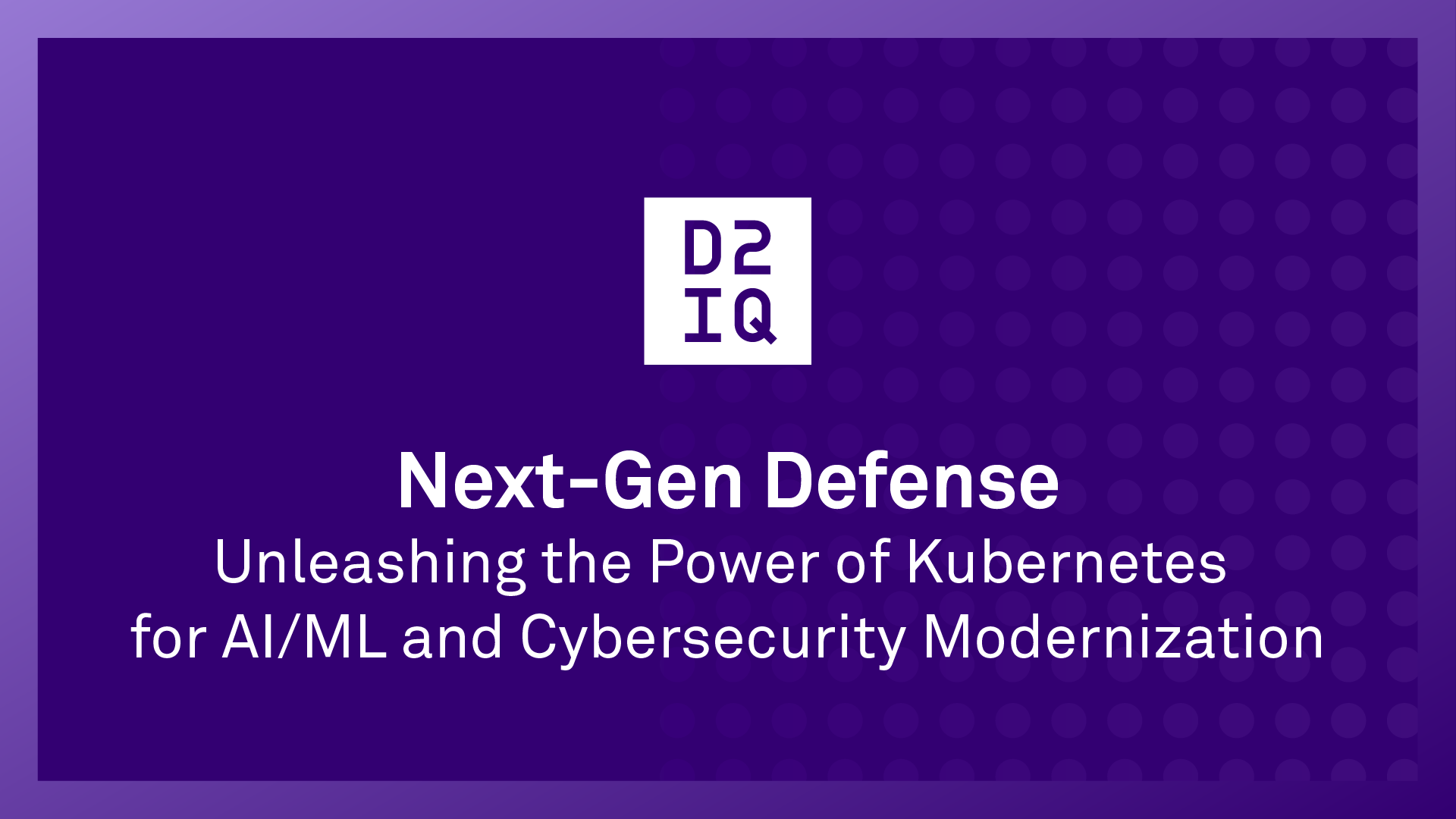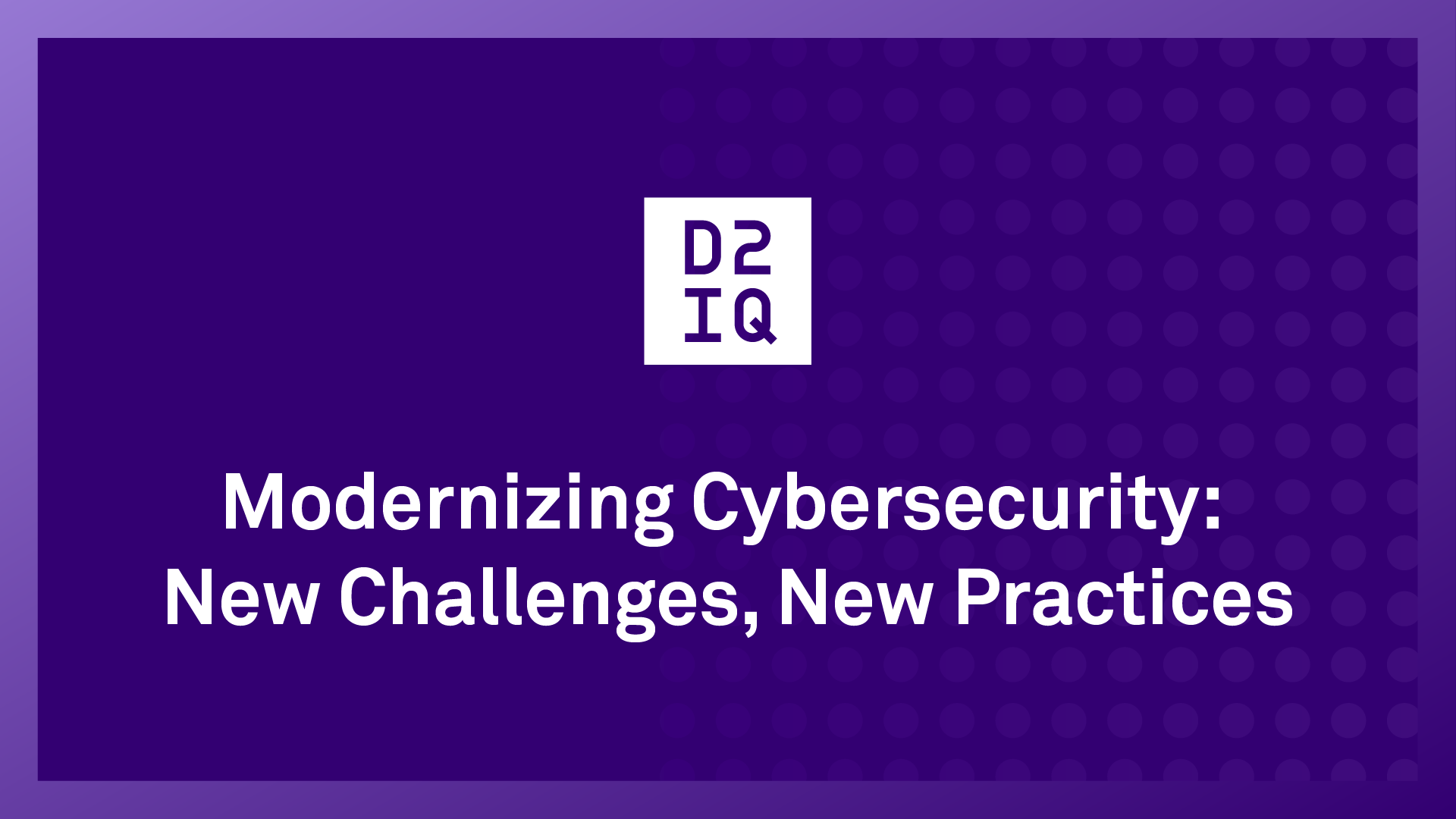DZone Survey 2023 Tracks Range of Container Experiences

8 min read
DZone has released the results of its latest annual container management survey, entitled “Containers: Modernization and Advancements in Cloud-Native Development.”
The survey findings reflect the experiences of developers and engineers in their deployment of containerized applications. The survey’s major areas of focus were:
- Container architecture, patterns, and techniques
- Containerization aspects, benefits vs. challenges, and security
- Position of containers in the software development lifecycle (SDLC)
Containers and Microservices
The survey found that the number of respondents who said that their organization runs any microservices was immensely lower than results seen in past surveys. Only 22% of respondents said their company uses microservices, while in our 2022 Microservices survey, the rate was 93%, and in the 2021 Containers survey, it was 74%.
Respondents at organizations using microservices had significantly more code and computational work running in containers. On average, respondents at companies using microservices estimated that 55% of their organizations' code (quantitatively) and computational work was in containers vs. 39% and 37%, respectively, for those at companies not using microservices.
Additionally, 57% of respondents at organizations using microservices said greater than half of their organizations' code was being run in containers, and 49% said greater than half of their organizations' computational work was done in containers, compared to 32% and 21%, respectively, for respondents who said their company did not use microservices.
Most Vital Container Aspects
Asked to rank the aspects of containerization they found to be most vital, "Magical, effortless deployment" was first, followed by "High availability" and "Horizontal elasticity." These scores differ greatly from the 2021 Containers Survey in which "High availability" was first, followed by "Process isolation.” In the 2021 survey, "Magical, effortless deployment" came in fourth place.
Asked what benefits from containers they expected vs. those they observed in practice, the most expected benefits were "Simplified version control," "Security," and "Modularity." The top benefits observed in practice were "Easier dev environment setup," "Scalability," and "High availability.”
Container Benefits
Container Challenges
Asked what challenges with containers they expected vs. those observed in practice, the most expected challenges were "Storage scaling," "Refactoring/re-architecting legacy applications," and "Application performance monitoring." The challenges observed most in practice were "Refactoring/re-architecting legacy applications," "Application performance monitoring," and "Ensuring application and network security."
Container Security
Asked how secure containerization had made their applications, 51% of respondents said that containerization has made their applications more secure. This majority is down from 69% of respondents who said containers led to more security in 2021's Containers survey. Additionally, only 7% of respondents in 2021 said that containerization made their applications less secure, while this year that number rose to 44%.
The most commonly used methods for managing secrets for containerized code were to "Store secrets in container images," "Mount secrets at runtime as a volume from an external file," and "Never store non-encrypted secrets in any system."
Containers in the Software Development Lifecycle
Asked in which stages in the software development lifecycle (SDLC) they used containers, "Hosted development" was the most common stage, with more than one-half of respondents saying they use containers at that stage. This was followed by "CI [build] server" and "Non-CI build server," then "Local development."
The findings also showed that respondents at organizations using microservices were neither significantly more or less likely than those at organizations not using microservices to utilize containers in "Local development," "Hosted development," or "Non-CI build environments."
The DZone survey also includes a case study that describes why Cerved chose D2iQ and the benefits the company gained in deploying the D2iQ Kubernetes Platform (DKP).
DZone’s findings reinforce the notion that containerization continues to mature and usher in the era of the cloud-native datacenter. The most recent CNCF KubeCon conference showed an exploding interest in Kubernetes, which was reflected in the most recent CNCF Annual Survey that showed cloud-native becoming “the new normal” and Kubernetes becoming “the operating system of the cloud.”
You can download and read a complementary copy of the DZone survey.
To learn how D2iQ can help your organization accrue the full benefits of a containerized environment, speak with the experts at D2iQ.









